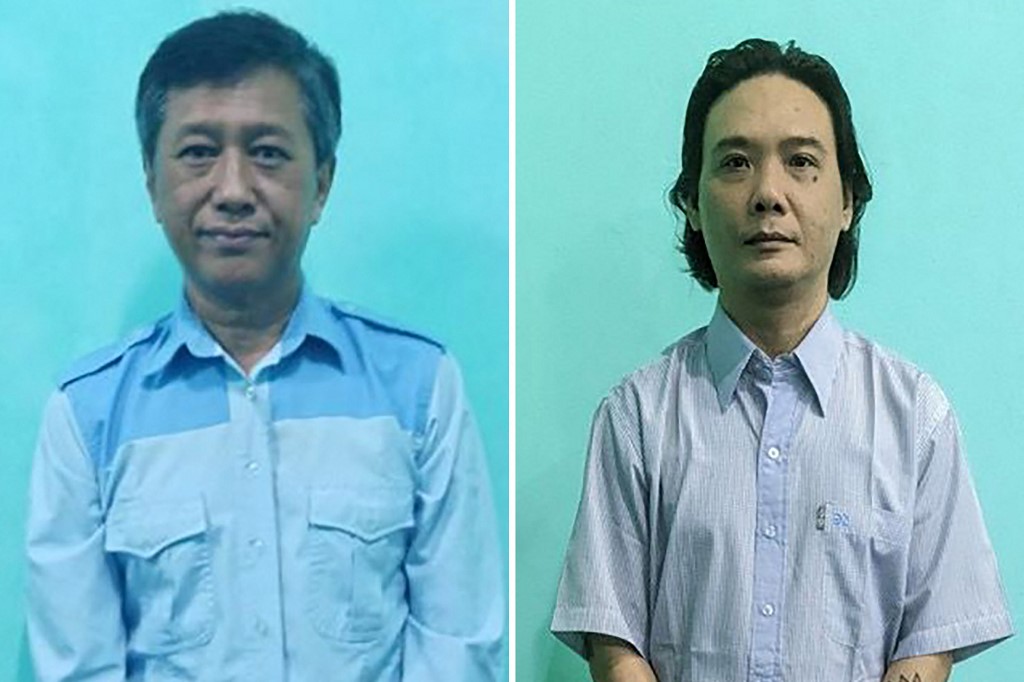[ad_1]

Beneath quarantine for COVID-19 publicity, Garret Bernal and his household missed a latest Sunday church service. So he strapped on a digital actuality headset and explored what it will be wish to worship within the metaverse.
With out leaving his house in Richmond, Virginia, he was quickly floating in a 3D outer-space wonderland of pastures, rocky cliffs and rivers, because the avatar of a pastor guided him and others by way of computer-generated illustrations of Biblical passages that appeared to return to life as they prayed.
“I couldn’t have had such an immersive church expertise sitting in my pew. I used to be in a position to see the scriptures in a brand new manner,” mentioned Bernal, a member of The Church of Jesus Christ of Latter-day Saints, extensively referred to as the Mormon church.

He’s amongst many People — some historically spiritual, some religiously unaffiliated — who’re more and more communing spiritually by way of digital actuality, one of many many evolving areas within the metaverse which have grown in recognition through the coronavirus pandemic.
Starting from religious meditations in fantasy worlds to conventional Christian worship companies with digital sacraments in hyperrealistic, churchlike environments, their devotees say the expertise affords a model of fellowship that’s simply as real as what may be discovered at a brick-and-mortar temple.
“A very powerful facet to me, which was very actual, was the nearer reference to God that I felt in my quick time right here,” Bernal mentioned.
The service he attended was hosted by VR Church, which was based in 2016 by D.J. Soto, a former highschool instructor and pastor at a nonvirtual church. VR Church payments itself as a religious group current “totally within the metaverse to have fun God’s love for the world.”
Soto had beforehand felt known as to church planting, or beginning new bodily church buildings. However after discovering the VR social platform AltSpaceVR, he was woke up to the probabilities of connecting in digital actuality. He got down to create an inclusive Christian church within the metaverse, an immersive digital world that has been gaining buzz since Fb mentioned final October that it will make investments billions in constructing it out.

Attendance was scant for the primary 12 months as Soto typically discovered himself preaching to only a handful of individuals at a time, most of them atheists and agnostics who had been extra all in favour of debating about religion. His congregation has since grown to about 200 individuals, and he has ordained different ministers remotely from his Virginia house and baptized believers who’re unable to depart their homes due to diseases.
“The way forward for the church is the metaverse,” Soto mentioned. “It’s not an anti-physical factor. I don’t suppose the bodily gatherings ought to go away. However within the church of 2030, the principle focus goes to be your metaverse campus.”
The Rev. Jeremy Nickel, an ordained Unitarian Universalist who relies in Colorado and calls himself a VR evangelist, additionally noticed the potential to construct group and “get away from the brick and mortar” when he based SacredVR in 2017.
Impressed by time spent in Nepal with Tibetan Buddhists and his different practices research at seminary, Nickel started with secular meditations with the purpose of being inclusive for all comers. However some religiously unaffiliated members of the group had been postpone by the identify, he observed, so he modified it to EvolVR and extra individuals joined.

It wasn’t till the pandemic, nonetheless, that attendance soared from a number of dozen to the tons of who now attend dharma talks and meditation classes through their chosen avatars, at instances assembly at a digital incarnation of a Tibetan Buddhist temple excessive within the mountains or floating weightlessly wanting down on the Earth.
“One of many causes we’ve turn out to be so common is you get the meditation that you just want, however you get the group additionally,” Nickel mentioned. “Now we have deep relationships, tons of of individuals from world wide who know one another and surprise, ‘Is your canine, OK? How’s your spouse?’”
The anonymity of digital actuality can assist individuals really feel extra assured about sharing deeply private points, mentioned Invoice Willenbrock, who leads a Christian fellowship on the social platform VRChat with worship and counseling companies for a flock of principally teenagers and early 20-somethings.

“I can’t even rely the variety of instances that I’ve heard, ‘I’m contemplating suicide. … It’s useful that we’re in VR,’” mentioned Willenbrock, a hospital chaplain and longtime Lutheran pastor who lately transformed to Jap Orthodoxy and calls himself a “digital missionary.”
On a latest Sunday, he preached at a cavernous digital cathedral, its lengthy halls illuminated by mild from stained-glass home windows. A colourful meeting of avatars listened to the sermon: An enormous banana sitting within the first pew subsequent to a different of a person in a shirt and tie, plus a mushroom, a fox, armored knights.
On the finish they took turns sharing why they got here to the digital group. Some noticed it as one thing to enrich, not substitute, in-person gatherings.
An individual with the username Biff Tannen, mentioned it was handy: “For instance right here in Scotland it’s chilly, it’s moist, it’s not very good exterior, however right here I’m sitting on this lovely church with my heating on.”
One other, represented by a robotlike avatar and the username UncleTuskle, mentioned that “as an individual with social phobia, it’s simpler for me to be right here” than in a bodily church.
Digital actuality can permit individuals to satisfy with out judgement no matter bodily capability or look, mentioned Paul Raushenbush, who’s senior advisor for public affairs and innovation on the nonprofit Interfaith Youth Core and who hosted a VR discuss present final month with spiritual leaders who use the expertise.
“What I really like about it’s that it’s taking … no matter technological alternatives are being provided and so they’re leveraging it to assemble individuals collectively for optimistic encounters,” Raushenbush mentioned. “And so they’re altering lives.”
Alina Delp can attest to that.
A former flight attendant who traveled throughout the nation for years and beloved to skydive, since 2010 she has been principally confined to her house in Olympia, Washington, attributable to a uncommon neurovascular situation known as erythromelalgia.
She wept the primary time she attended a VR Church service, understanding instantly that she had discovered a house. Delp was taken by the group’s judgment-free ethos and deal with “God’s love fairly than concern.” She started to volunteer with small teams, and ultimately turned a pastor.
“I used to be given a life. … It’s the distinction between infinite time of sleep and tv versus my capability to be productive,” she mentioned.
Soto baptized her in a metaverse ceremony in 2018, submerging her purple robotic avatar in a pool as kin and associates cheered her on nearly. Whereas even many VR proponents consider such sacraments ought to be provided solely in a bodily house, to Delp it felt like an actual blessing.
“Jesus is who baptized me. Jesus is who adjustments me,” she mentioned. “The water, or lack thereof … doesn’t have the facility to vary me.”
Picture credit: VR Church through AP, AP/Steve Helber, AP /Steve Helber

[ad_2]
Source link

















